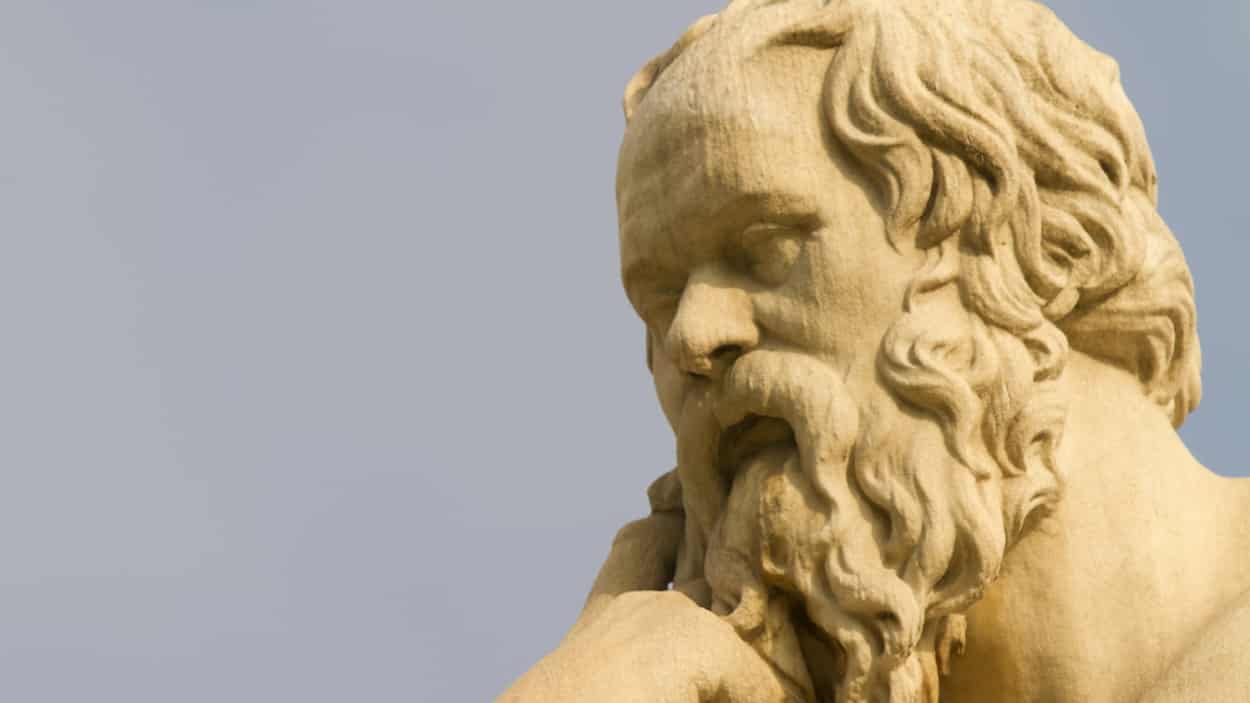I recently read a description of troubling social problems, in particular increasing violence and the decline of moral standards. It included this description:
People “contemptuously rejecting temperance as unmanliness . . . insolence [as] breeding and . . . impudence [as] courage . . . [In this Age] the father gets accustomed to descend to the level of his sons and to fear them, and the son to be on a level with his father, having no shame or fear of his parents.” Similarly, “the teacher fears and flatters his scholars, and the scholars despise their masters and tutors . . .; the old do not like to be thought morose and authoritative, and therefore they imitate the young . . . and the citizens chafe impatiently at the least touch of authority.” Before long, “they cease to care even for the laws, written or unwritten.” As a result, “the excessive increase of anything causes a reaction in the opposite direction.”
The author concluded by expressing concern that these conditions would lead to dictatorship because “the most aggravated form of tyranny and slavery [arise] out of the most extreme form of liberty.”
When would you guess that passage was written? If you are thinking recently you are mistaken. If, instead, you are thinking a couple of decades ago, you are still mistaken. If you are a senior citizen and feeling confident it was written in the 1960s, you are equally incorrect. If you are a history buff, you could make a plausible argument for the decade after the French Revolution or, perhaps, World War I. But those answers would be wrong, as well.
The passage was written almost 400 years before the time of Christ. It can be found in Plato’s Republic, and it offers an invitation to take a fresh look at our perspective on the problems we are facing in the twenty-first century.
To begin with, as Plato’s words make clear, our problems today are not unique. In fact, a closer look at the sweep of history between his time and ours would reveal similar laments in virtually every age and society.
A closer look at similar situations in history might also reveal the factors that historians believe were responsible for the increase in violence, the decline of moral standards, and other social problems. This knowledge would allow us to get beyond rash judgment about the causes of our social problems and instead search for genuinely plausible explanations. That search, in turn, would enable us to set aside mutual blaming and demonizing and engage in meaningful discussion and debate.
The change in knowledge and attitude produced by such a broadening of perspective would surely be salutary for family life, education, and legislative deliberation.
Some might take the pessimistic view that if social problems have been repeated over and over throughout history, there can be little hope for solving them today or in the future. But there is good reason to be more optimistic than that.
As historians Will and Ariel Durant observe in The Lessons of History, ”History repeats itself, but only in outline and in the large. We may reasonably expect that in the future, as in the past . . . new generations will rebel against the old and pass from rebellion to conformity and reaction; [and] that experiments in morals will loosen tradition . . . But in a developed and complex civilization individuals are more differentiated and unique than in a primitive society . . . [so] the results are less predictable. There is no certainty that the future will repeat the past. Every year is an adventure.”
God willing, the adventure of 2018 will be a pleasant one.
Copyright © 2017 by Vincent Ryan Ruggiero








